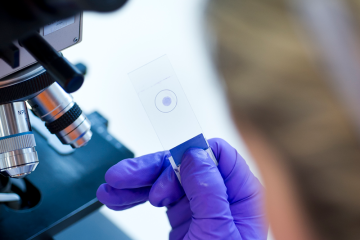Strategic grant
Calf-Free Research: Developing robust approaches to replace foetal calf serum with synthetic alternatives in cell culture

At a glance
Completed
Award date
October 2024 - March 2025
Grant amount
£97,478
Principal investigator
Dr Manuela Natoli
Co-investigator(s)
Institute
The Francis Crick Institute
R
- Replacement
